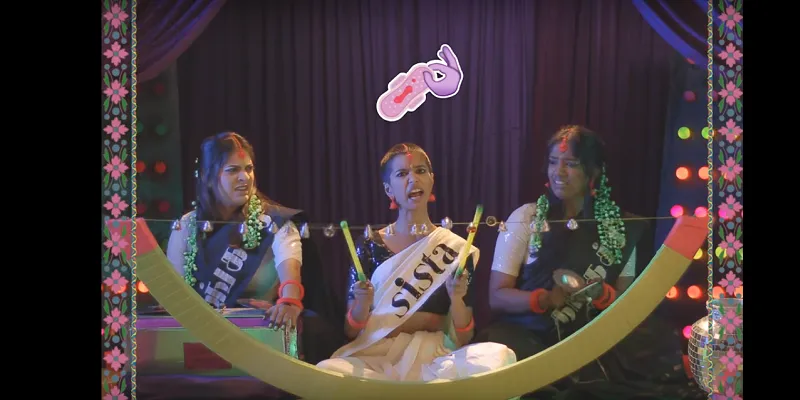How women can bleed with pride and protect the environment at the same time
Menstrual cycles and periods are always talked about in hushed voices. How relieved would women be if they didn't have to whisper about periods anymore? How good would it feel to bleed with pride and not with the stigma attached to menstruation?
If one wonders where to begin, Aranya Johar has an answer for that.
"In sixth grade, Saswati ma’am gave the sex talk to the class without separating boys and girls. She sensitised boys to puberty and growth, and she introduced us to a whole new world. That year when I stained my uniform, the very same boys handed me their hoodies to wear. They told me it was my superwoman week."
Aranya doesn't just talk about the importance of sensitising men about periods in her video that begins with 'Dot Dot Dot', but also about how women are being told constantly that periods limits them physically, emotionally, and biologically. She goes on to state how talking about periods openly would make women bleed with pride. After all, who wouldn't want to celebrate the only kind of bleeding where violence isn't involved?

On this Menstrual Hygiene Day, while Aranya is all about breaking the myths and taboos around menstrual cycles, Sonia Ashraf (who got famous with her 'I can't do sexy') wants to take a scientific approach to it.
Sonia tries to answer the question—what can a woman use during her periods that is comfortable for her and doesn't harm the environment at the same time?
Every year, we dump 125 kg of sanitary waste in dump yards, hence it is high time that municipality started treating them as biomedical waste. If one turns to tampons, there is this misconceived notion that they break the hymen. In a country, where in large part, a girl is expected to be a virgin till her marriage, using a tampon wrongly implies that she may not be a virgin anymore.
Even when you come out of that misconception, tampons use a lot of chemicals to keep the cotton white. As a result, there could be itching and infection. Hence Sonia's suggestion is to use menstrual cups as they are reusable, sustainable, and also affordable.
One might hope that taking these conversations to the public space would ensure that women do not have to wrap and hide sanitary napkins as if they are something to feel embarrassed about.
Are women willing to make a few lifestyle changes for the sake of environmental safety?
Can both men and women be asked to contribute towards creating awareness about periods and pads, at least when it isn't just about helping women bleed with pride but also about protecting our environment?







